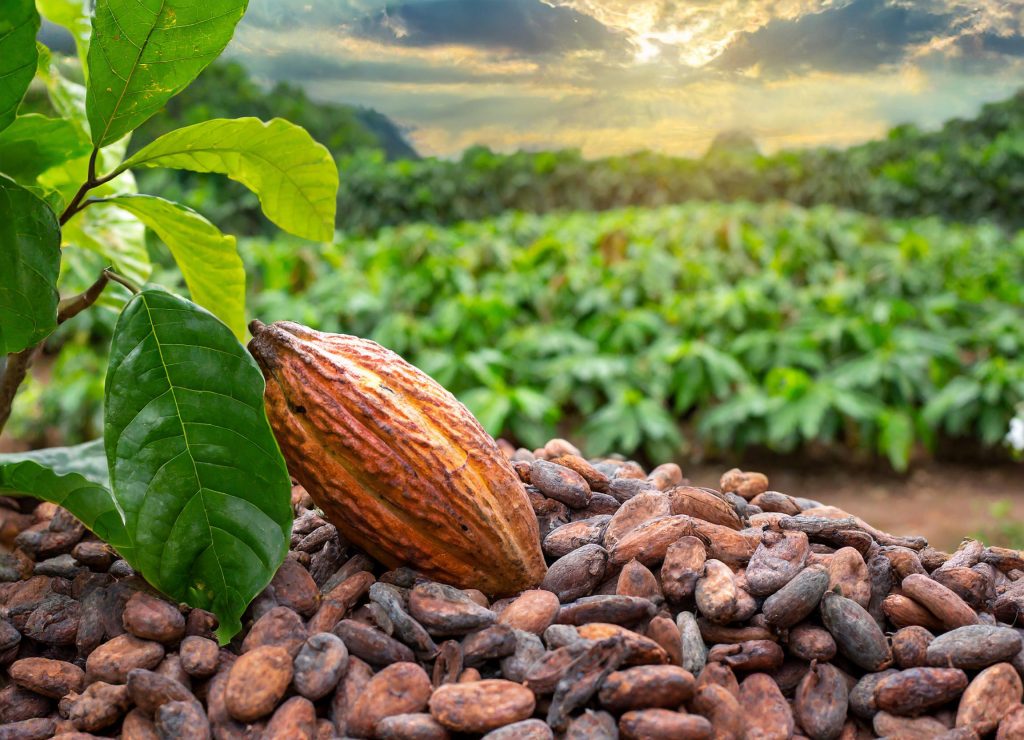Rakiya A.Muhammad
Smallholder farmers have nurtured cocoa for generations; their efforts rooted in tradition and resilience. Today, their unwavering dedication is fuelling a remarkable transformation—one that blends heritage with innovation, propelling Nigeria onto the global stage as a rising powerhouse in cocoa production.
A Surge in Prosperity, Promise
Late 2024 marked a historic milestone: Nigeria’s cocoa exports soared to approximately N1.2 trillion—a staggering increase of 606% compared to the previous year. This isn’t just a surge in numbers; it’s a testament to Nigeria’s emergence as a key player in the international cocoa market. Driven by favourable market conditions and shifting global supply dynamics, Nigeria is seizing new opportunities amid climatic challenges faced by traditional producers like Côte d’Ivoire and Ghana.
According to the Senior Special Assistant, cocoa now accounts for approximately 29% of Nigeria’s total agricultural exports and 5.6% of non-oil exports overall.
For cocoa farmers like Tiamiyu Afolabi, these developments are a blessing. Afolabi proudly shares that he realized over N25 million from his cocoa farm in the recent season—a clear reflection of the sector’s resilience and potential. With over 300,000 smallholder farmers contributing about 80% of Nigeria’s cocoa, their stories of perseverance and adaptation are shaping a promising future for the industry.
Turning Challenges into Opportunities
Climate change has impacted major cocoa-producing nations, with erratic rainfall and rising temperatures hampering their output. Nigeria’s resilience and strategic positioning have allowed it to fill the gap, strengthening its role as a reliable supplier. This growth underscores a broader narrative: Nigeria’s commitment to transforming its cocoa industry into an engine of sustainable development.
Innovation at the Heart of Growth
Nigeria’s journey isn’t just about increasing volume—it’s about redefining quality and sustainability. The introduction of high-yield, disease-resistant cocoa varieties—developed through rigorous research—has revolutionized farming. These genetic breakthroughs combat pests like black pod disease and cocoa swollen shoot virus, while boosting per-hectare yields. The result? Farmers can produce more with fewer inputs, fostering both economic prosperity and environmental conservation.
Modern agriculture is also making waves. Precision tools such as GPS-guided planting, soil testing, and organic fertilization are empowering farmers across all scales. Government-supported training programmes and cooperative initiatives are breaking barriers, ensuring smallholders access these innovations and benefit from increased productivity.
A Strategic Blueprint for the Future
Nigeria’s cocoa renaissance is underpinned by proactive government policies. The recent establishment of the National Cocoa Management Board aims to craft a sustainable, inclusive cocoa economy—one that boosts GDP, attracts youth into agriculture, and elevates Nigeria’s status as a top exporter of premium, ethically sourced cocoa.
Institutions like the Cocoa Research Institute of Nigeria (CRIN) are pioneering efforts across 14 key states—establishing seed gardens, training farmers, and ensuring compliance with international standards. These initiatives are critical to meeting stringent regulations such as the European Union’s Deforestation Regulation (EUDR), which encourages transparency and sustainability in supply chains.
From Regulation to Opportunity
Compliance with global standards isn’t just a challenge—it’s an open door to lucrative markets,turning regulatory requirements into a competitive advantage. As Dr. Kingsley Uzoma, Senior Special Assistant to the President, notes, embracing these standards aligns with Nigeria’s green economy goals—driving innovation in traceability technologies like blockchain and satellite monitoring.
Uniting for a Sustainable Tomorrow
Industry leaders like Dr. Victor Halim Iyama and government officials stress the importance of collective action. From climate resilience to market efficiency and farm succession, every stakeholder—farmers, private sector, international partners—must work together to ensure Nigeria’s cocoa sector not only grows but thrives sustainably.
Women’s empowerment is also central. Mrs. Ruth Agbo of Association of Women in Trade and Agriculture(AWITA) emphasizes supporting women farmers as vital to long-term growth, ensuring that the benefits of this transformation reach every corner of society.
Cocoa as a Cultural, Economic Heritage
Cocoa is more than an export commodity; it’s woven into Nigeria’s cultural fabric—stories, traditions, and aspirations. Nigeria’s ambitious goal to produce 500,000 tonnes by 2025 isn’t just about numbers; it’s about crafting a legacy—one rooted in sustainability, innovation, and inclusive growth.
While obstacles remain—logistical hurdles, international trade barriers—the potential is immense. With strategic investments, adherence to international standards, and a collective vision, Nigeria is poised to reclaim its place as a leading global cocoa supplier, crafting a future where prosperity and sustainability go hand in hand.


